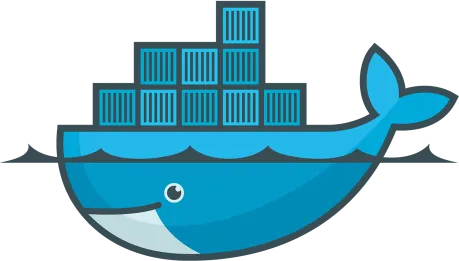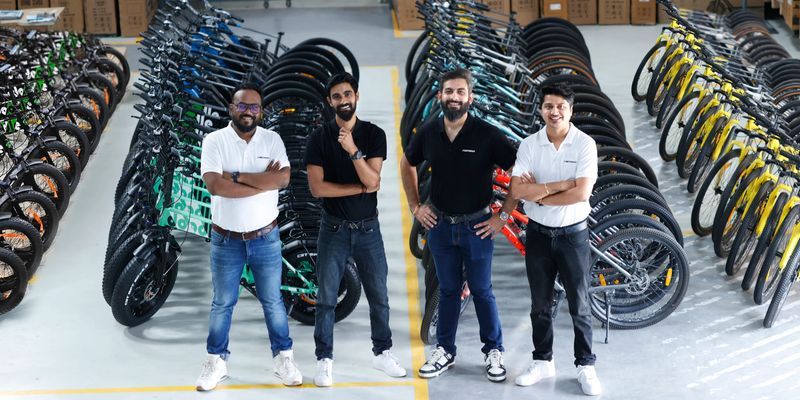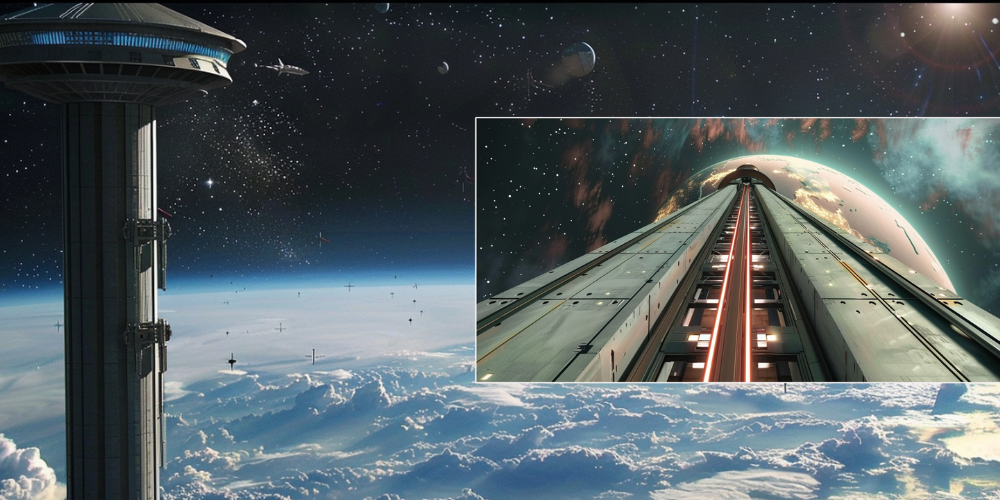Top 7 Tech Trends of 2014: Breaking new ground
From gravity defying materials to super human exoskeletons, scientists and engineers throughout the world were busy breaking new ground and advancing the frontiers of technology in 2014. Google announced its ambitions to make immortality a reality by setting up 1.5 billion USD research center to address the problem of human aging. IBM unveiled its attempts towards creating technology that eventually would mimic the human brain.The Chinese government is getting ready to build a super collider twice the size of CERN’s Large Hadron Collider. While most of the new technologies that emerged from this year are at least a few years away from reaching the public at large, in this post we look things that defined the technological landscape in 2014.
Click here to see our infographic
Rise of Docker:
From Virtualization to Containerization
Docker is a phenomenal open source project which saw explosive growth in 2014. Docker is disrupting the conventional virtualizaition based cloud computing business by bringing Linux Containers to the mainstream.

The conventional IaaS (Infrastructure as a Service) providers like Amazon Web Services or Microsoft Azure provide you with Virtual Machines (VM) that run on top of their physical servers. These companies have made it very easy to spin up or destroy compute instances (servers) and allow to rapidly deploy new instances to meet an increase in demand. However, these virtual machines have a significant overhead. Each VM has its own copy of the Operating System and bunch of other libraries to run applications.
This duplication causes unnecessary waste of precious memory and storage bandwidth. The idea behind containerization is to avoid this duplication by sharing the OS kernel while still providing independent and isolated environments for userspace applications. Linux Containers (https://linuxcontainers.org/) have been around for some time now and companies like Heroku.com and Google have been using them extensively. Google reportedly launches two billion Linux Containers every week in its data centers.
Docker has made containerization more accessible to the average developer and has also built a tremendous community around it. Following are some very impressive stats about Docker considering the project is less than two years old.
- 13 million downloads of the Docker Engine
- 30,000 “Dockerized” applications on Docker Hub
- 14,000 stars on GitHub
- 570 contributors
HeartBleed, ShellShock and Https Everywhere
2014 saw the disclosure of two huge security vulnerabilities the HeartBleed bug (http://heartbleed.com) and ShellShock . Both these had the potential to impact millions of unpatched servers at the time they were disclosed. While security vulnerabilities are being disclosed and software is being patched regularly, what made HeartBleed and Shellshock unique was the way these were marketed to the general public. Major newspapers carried stories which helped highlight the seriousness of these bugs.
These bugs have since been patched, but they underscored the importance of security in today’s internet. Google has been encouraging webmasters to start supporting https on their site. They recently announced that Google would use https as a ranking signal. This simply means that all other things being equal, a site that supports https would be ranked higher in Google search.
The Electronic Frontier Foundation announced Lets Encrypt (letsencrypt.org) Project in association with Mozilla, Akamai and Cisco. Lets Encrypt is a free certificate authority which aims to bring simple and free SSL support to all websites (starting summer 2015).
Space Exploration Rebooted
Rosetta, Philae and Mangalyaan
Over the past year a lot of exciting things happened in space exploration. Mangalyaan, India’s maiden mission to Mars successfully entered Mars orbit after more than 298 days in transit. While Mangalyaan’s feat is extraordinary, it dwarfs in comparison to European Space Agency’s Rosetta Probe which reached its target comet 67P/Churyumov–Gerasimenko after a staggering 10 years and 9 months in flight. What makes this even more wonderful is that Rosetta was able to launch Philae, a landing probe, to the surface of the comet, making it the first spacecraft to land on a comet.
SpaceX, the American space transport company, continued its impressive strides and unveiled plans for the DragonRider, a crew carrying version of its Dragon Spacecraft.

However, the biggest news in spaceflight in 2014 came from NASA which announced its plans for putting humans on Mars by 2030. NASA took the first steps towards this ambitious goal by successfully launching the first test flight of its Orion Multi Purpose Crew Vehicle.
Online Privacy and Anonymity in a post Snowden World
Netizens throughout the world are still coming to terms with the fact the government surveillance of online activity is a reality which we cannot avoid. In a survey by Pew Research, over 91 % people said that they have lost control over how companies collect and store personal information about them.
Major internet companies have taken a very public stand against unauthorized government surveillance. Google, Yahoo and Microsoft have all started encrypting data centre traffic in the aftermath of reports that security agencies might be tapping into unencrypted data that flows between servers.
Another shot in the arm to the privacy movement came from Apple which announced that all upcoming Apple phones will have user information encrypted using a key that only exists on the user’s phone. Apple will not be able to hand over user information to government even if it wanted to. Google’s Android mobile operating system has had encryption features for more than three years now. However, with the recently released Android Lollipop version, the full disk encryption feature has been turned on by default.
Many startups jumped on the anonymity bandwagon and a few of them ended up capitalizing it effectively. Snapchat, an anonymous texting app, is reported to have a valuation of around 10 billion USD. This year also saw an increase in popularity of anonymous secret sharing apps like Whisper and Secret.However, their usage is tapering off as the year ends.
Virtual reality
For years, engineers and scientists have dabbled with the idea of creating interactive human computer interfaces which go beyond the conventional mediums of screens and touch devices.

The advancements in display and wearable technology have finally made immersive virtual reality possible and available for public consumption.Oculus, a company which started as wildly successful Kickstarter for creating virtual reality headset, is leading the charge where it comes to bringing virtual reality to the masses. John Carmack, the legendary developer of games like Doom and Quake, was impressed enough to join the company as the CTO.When you put on the Oculus head set, you enter a computer generated environment, which is unlike any other entertainment experience you have ever had. Continuous improvement to the hardware has made the virtual experience more and more life-like.
Facebook acquired Oculus in March 2014, and since then many other companies have come up with their versions of virtual reality devices. Sony announced ‘Project Morpheus’, virtual reality headsets, to go with its PlayStation series of game consoles. Samsung announced Gear VR in association with Oculus, which can be run on it Galaxy S4 series of phones. Google has led a 542 million investment in Magicleap (magicleap.com), a startup working on cinematic reality.
The Bitcoin Correction
2014 started with a bang for Bitcoin as it reached more than 900 USD in January 2014. It was reported to have breached the 1000 USD ceiling on some exchanges. However, the Bitcoin bull-run was interrupted abruptly by a bunch of incidents that put a question mark over the viability of bitcoins.
In February 2014, one of the largest bitcoin exchange, Mt. Gox, filed for bankruptcy protection citing 774000 lost bitcoins (worth more than 450 million USD at then prevailing rates). A few other exchanges and sites accepting were also reported to suffer from bitcoin theft. Bitcoins were also the preferred currency on illegal sites like SilkRoad. When SilkRoad was busted, more than 30,000 bitcoins were seized which were later auctioned off for more than 25 million USD.

Bitcoin is currently trading at less than half of where it was at the start of 2014. People have suggested that the dramatic rise in Bitcoin was a speculative bubble, and some have even gone to the extent of calling it a ponzi scheme.
However, Bitcoin still holds a lot value for the fact it brings a lot of new ideas from a technology stand point. It is the first decentralized peertopeer payment network that is powered by its users with no central authority or middlemen. There are people who still believe in the power of bitcoins. Angelist suggests that there are 579 Bitcoin startups with more than 2000 investors.
Wearable Tech
Apple Watch, Android Wear and the Decline of Google Glass
2014 was an exciting year in the field of wearable computing. App le finally unveiled ‘Apple Watch’, its much anticipated answer to Android Wear. A bunch of companies released smart watches based on Android Wear. Most notable among these was the Moto 360 (https://moto360.motorola.com/).
Apple also launched Healthkit , a centralized platform for health related apps which wearable devices can plug in to. However 2014 was not such a great year for Google Glass, Google’s audacious moon-shot attempt at bringing wearable computing to the masses , as it failed to gather widespread adoption.











